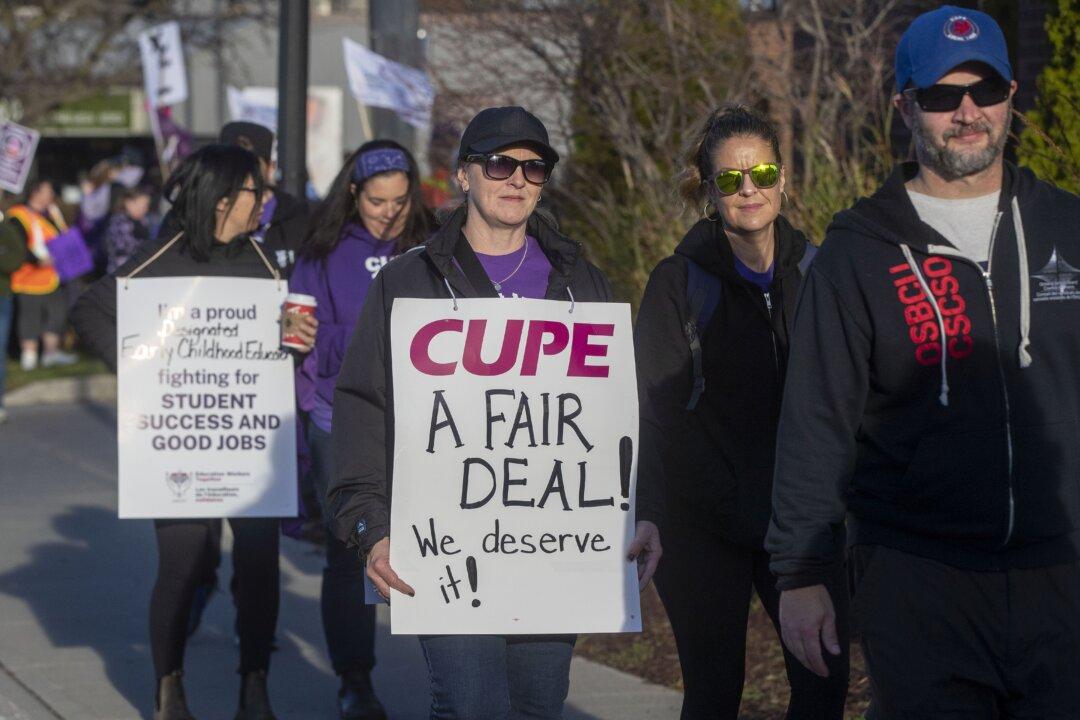The union representing thousands of education workers striking across Ontario for higher compensation says it will be calling for general strike action from other unions, both public and private, across the province on Monday.
Meanwhile, Ontario Premier Doug Ford told reporters Monday morning that his government is willing to rescind the notwithstanding clause if the Canadian Union of Public Employees (CUPE) halts its strike.





